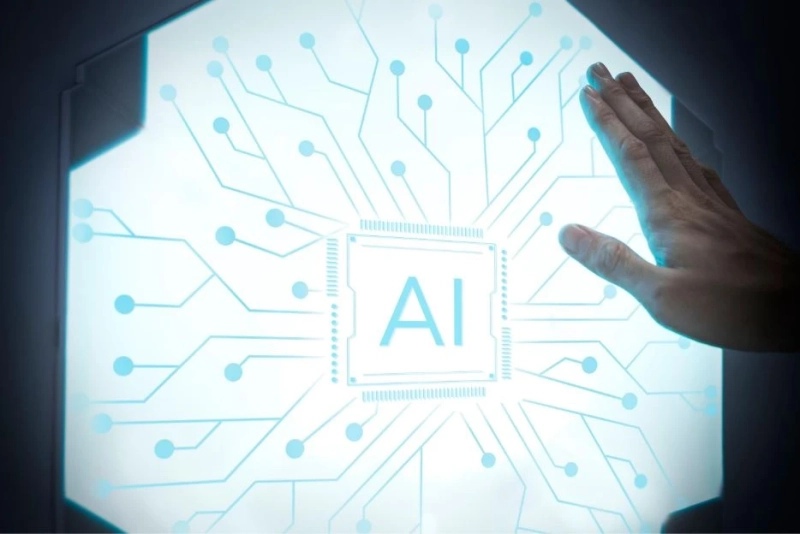Are we about to witness a new era where machines will be able to understand human emotions?
As thrilling as that may sound, a more realistic scenario would be utilizing this capability to drive profit margins.
Certain attempts at AI recognizing, interpreting, and responding to human emotions are already evident in chatbots, which are being used left, right, and center to uphold customer support departments and client satisfaction initiatives.
Developers don’t hide that one of the main goals of the initiative is to “enhance customer experience”.
Virtual assistants are already enhancing user experience, although they’re just getting started.
We seem to be at the phase where human-machine interactions are becoming more natural and intuitive. Will AI be able to foster a deeper connection with humans?
Ethical Considerations, Anyone?
Machines equipped with the ability to understand human emotions should arguably be able to handle social situations with finesse. The capability should fit perfectly in various departments, notably customer service, education, and healthcare.
Think in terms of interactive educational platforms personalizing learning experiences based on individual responses and personalized mental health support. Sounds like a dream come true, but what about ethical considerations?
First and foremost, individual users are typically the subject of human emotion research, whether they know it or not.
In the words of Luke Stark and Jesse Hoey, authors of the research dubbed “The Ethics of Emotion in AI Systems”, the “ethics of affect/emotion recognition, and more broadly so-called digital phenotyping ought to play a larger role in current debates around the political, ethical and social dimensions of AI systems.”
AI's Emotional Intelligence Revolution
Whether this scenario will come to pass remains to be seen but what we know for certain is that AI and emotions already seem to fit well… at least according to users’ feedback.
The move into the field of psychology is more than a mere technological leap. If anything it’s a shift in the human-machine dynamics that pictures AI as a responsive, socially aware entity.
“Entity” may cut it, too. AI will probably be capable of grasping social cues soon enough, but what about participating in social interactions?
For one thing, the nature of human social dynamics requires machines to recognize subtleties like sarcasm and irony and develop empathy to suit specific contexts. In other words, only socially adept AI can hope to expand into fields classic SF writers foresaw in the previous millennium (e.g., social robots and virtual companions).
One important distinction to make here is the one between individual interactions and societal contexts.
Potential Use Cases of Emotionally Intelligent AI
While future uses of sensitized machines are still speculative, some use cases are already presenting themselves.
Let’s take a look at some ideas:
Team Dynamics: Emotionally intelligent AI can recognize and respond to the emotions of human team members; Leadership and decision-making: AI with emotional intelligence can assist by providing insights into team morale and emotional well-being; Social robotics: Sensitized social robots can fit into human social norms, enabling their deployment in companionship and caregiving; Public safety: Emotionally intelligent AI can be deployed in public spaces to respond to crowd emotions; Patient interactions: Emotional AI can provide empathetic communication and support; Personalized learning: Educational AI can adapt learning materials based on the emotional responses of individual learners; Virtual companionship: Sensitized robots can provide emotional support to alienated, lonely, and sick people; Adaptive assistance: AI for healthcare and customer service can adapt its responses based on the emotions of its users; Natural conversations: Virtual assistants and chatbots can pick on different contexts.
“AI with Heart”
The idea behind this phrase is that AI should transcend mere logical processing to exhibit an understanding of the emotional nuances of human interactions. In other words, becoming a “responsive entity”.
Presently, the impact of emotional intelligence in technology is evident only in user experience on a large scale. AI’s attempts to forge a deeper connection with its users are heartwarming… As per the proposed phrase, the sentiment should go both ways.
But does it?
Beyond individual interactions, AI can hardly grasp a wider context, at least for now. The idea of public safety being reinforced with a little help of technology has been reimagined for decades. Some of the worst-case scenarios can be seen in Philip K. Dick’s novels and the movies that inspired them (e.g., “Minority Report”).
For machines to be perfect, humans creating them need to be equally perfect, and that simply isn’t the inherent ability of the human brain.
As things stand now, the efforts in this department are chiefly concerned with increasing the profits of AI makers, so the focus is on customers, patients, and individual users. Notable advancements are evident in education. So far so good.
Basically, the initiative signifies a departure from the binary confines of code, aiming to introduce a dimension of empathy into AI. Whether this shift from a logical approach to an emotional approach will benefit humankind is highly doubtful.


